| Dimensions | 3000 × 1200 mm |
|---|---|
| Brand |
British Gypsum |
| Thickness |
12.5mm |
| Material Type |
Gyproc |
| Pieces Per Pack |
1 |
| Sales Unit |
Board |
| Unit Coverage |
3.6m2 |
| Manufacturers Reference |
5200001048 |
| Thermal Conductivity |
0.19W/mK |
| Fire Rating |
A2-s1 ,d0 |
| Edge Type |
Tapered |
| Facing |
White Paper Facing |
| Weight (kg/m2) |
10kg/m2 |
| Product Range |
Gyproc Wallboard Plasterboard |
Please note this item is a Special Order – see terms and conditions
12.5mm Gyproc Wallboard Plasterboard (3000mm x 1200mm) – Tapered Edge – 3.6m2
Request your delivery date in checkout
on orders over £350 +VAT
£15.59 ex VAT
In Stock


Please note this item is a Special Order – see terms and conditions
EXCELLENTTrustindex verifies that the original source of the review is Google. Quick deliveryTrustindex verifies that the original source of the review is Google. Excellent service, delivery and products. Very easy to place order online.Trustindex verifies that the original source of the review is Google. Delivery on the day requested, professional and helpful driver, good price, all products in good condition - would use again. Thanks!Trustindex verifies that the original source of the review is Google. All good, good price, turned up on time, all goods in perfect condition. Plus a friendly driverTrustindex verifies that the original source of the review is Google. Excellent company. I was able to arrange delivery date. Courteous delivery man . I would highly recommend to anyone.Trustindex verifies that the original source of the review is Google. Great company, much cheaper than my local builders merchant and delivered to my door in a couple of days. Very impressed 👍Trustindex verifies that the original source of the review is Google. Delivery guy went beyond and dropped the plasterboards off in the house instead of just leaving it on the kerb side. The plasterboards arrived without any damage. Thank you.Trustindex verifies that the original source of the review is Google. Product exactly as advertised, all items arived in good order - quick and friendly delivery - I can definitely recommend themTrustindex verifies that the original source of the review is Google. Top-notch service! Fast delivery, great price, good stock, and a great delivery driver – what more could you ask for? Highly satisfied customer here.
12.5mm Gyproc Wallboard Plasterboard
12.5mm Gyproc Wallboard Plasterboard is a high-quality building material designed for interior walls and ceilings. It is made from gypsum plaster, which is sandwiched between two layers of heavy-duty paper. The result is a strong and durable board that is easy to install and finish.
The benefits of using 12.5mm Gyproc Wallboard Plasterboard
One of the key benefits of Gyproc Wallboard Plasterboard is its versatility. It can be used in a wide range of applications, from residential to commercial buildings. Whether you’re looking to create a smooth, seamless finish for your home’s walls or need a durable solution for a high-traffic commercial space, 12.5mm Gyproc Wallboard Plasterboard can meet your needs.
Another benefit of 12.5mm Gyproc Wallboard Plasterboard is its sustainability. The boards are made from gypsum, which is a naturally occurring mineral. Gypsum is a renewable resource and is widely available throughout the world. Additionally, Gyproc Wallboard Plasterboard is manufactured using a low-carbon process, which helps to reduce its environmental impact.
12.5mm Gyproc Wallboard Plasterboard is easy to install and finish, making it a popular choice among contractors and DIYers. The boards can be cut to size with a saw or knife and can be easily screwed or nailed to wooden or metal framing. Once installed, the boards can be finished with jointing tape and compound to create a smooth, seamless surface ready for painting or wallpapering.
How to install 12.5mm Gyproc Wallboard Plasterboard
While installing Gyproc Wallboard Plasterboard can seem intimidating, it is actually a relatively straightforward process. Here are some general guidelines to follow:
- Measure and cut the boards:
- Mark the stud positions:
- Install the boards:
- Tape the joints:
- Finish the surface:
Measure the length and width of the wall or ceiling you will be covering and use a saw or knife to cut the boards to the appropriate size.
Use a stud finder to locate the wooden or metal framing behind the existing wall or ceiling. Mark the position of each stud on the surface of the Gyproc Wallboard Plasterboard.
Position the first board against the wall or ceiling, ensuring it is level and flush with the framing. Secure the board to the framing with screws or nails, ensuring they are spaced evenly along the length of the board. Repeat this process for each subsequent board, ensuring there is a small gap between each board to allow for expansion.
Once all the boards are in place, cover the joints with jointing tape. Apply a layer of jointing compound over the tape, ensuring it is smooth and even. Allow the compound to dry completely before sanding the surface lightly to create a smooth, seamless finish.
Once the surface is smooth and even, it is ready for finishing. You can paint or wallpaper the surface, or even tile it if desired.
It is important to note that this is a general guideline and there may be specific steps or considerations depending on the particular installation. Always consult the manufacturer’s instructions and follow all safety precautions when installing Gyproc Wallboard Plasterboard. Additionally, if you are not comfortable installing the boards yourself, it is always best to hire a professional to ensure the job is done correctly.
How to correctly store Gyproc Wallboard Plasterboard
Proper storage of Gyproc Wallboard Plasterboard is important to ensure its quality and performance are not compromised. Here are some guidelines to follow when storing the boards:
Gyproc Plasterboard should always be stored flat, never on its edge or end. Storing the boards on their edge or end can cause them to warp or bow, which can make installation difficult and affect the finished surface.
Moisture can damage Gyproc Wallboard Plasterboard and reduce its strength and durability. Store the boards in a dry, well-ventilated area, away from any sources of moisture or humidity. If storing the boards outdoors, ensure they are covered with a tarp or other waterproof cover to protect them from rain or snow.
Gyproc Wallboard Plasterboard is relatively fragile and can be easily damaged. Store the boards in a location where they will not be bumped, knocked over, or subjected to other types of impact. Additionally, avoid stacking heavy objects on top of the boards, as this can cause them to crack or break.
It is important to store Gyproc Wallboard Plasterboard off the ground to protect it from moisture and other types of damage. Use pallets or other supports to keep the boards elevated off the ground.
Finally, it is important to store Gyproc Wallboard Plasterboard in a secure location to prevent theft or vandalism. Store the boards in a locked warehouse or other secure location, and monitor access to the storage area to ensure the boards are not tampered with or stolen.
By following these guidelines, you can ensure that your Gyproc Wallboard Plasterboard remains in good condition and is ready for use when you need it. Always refer to the manufacturer’s instructions for specific storage recommendations and safety guidelines.
What is Gyproc Wallboard Plasterboard?
Gyproc Wallboard Plasterboard is a type of gypsum board used for interior wall and ceiling construction.
What tools are needed to install Gyproc Wallboard Plasterboard?
The tools required to install Gyproc Wallboard Plasterboard include a measuring tape, a saw or knife for cutting the boards, screws or nails for securing the boards to the framing, jointing tape and compound for finishing the joints, and sandpaper for smoothing the surface.
Is it necessary to use a professional installer to install Gyproc Wallboard Plasterboard?
While it is possible to install Gyproc Wallboard Plasterboard yourself, it is recommended to hire a professional installer to ensure the boards are installed correctly and to minimise the risk of damage or injury.
What safety precautions should be taken when installing Gyproc Wallboard Plasterboard?
When installing Gyproc Wallboard Plasterboard, it is important to wear protective clothing, gloves, and eye and ear protection. It is also important to ensure that the work area is well-ventilated and to follow all manufacturer’s instructions and safety guidelines.
Can Gyproc Wallboard Plasterboard be recycled?
Yes, Gyproc Wallboard Plasterboard can be recycled. Many recycling centres accept gypsum board, which can then be ground up and used to make new plasterboard or other products.
How long does Gyproc Wallboard Plasterboard last?
The lifespan of Gyproc Wallboard Plasterboard depends on various factors, such as the environment it is installed in, the level of wear and tear, and the quality of the installation. With proper installation and maintenance, Gyproc Wallboard Plasterboard can last for many years.
| Dimensions | 3000 × 1200 mm |
|---|---|
| Brand |
British Gypsum |
| Thickness |
12.5mm |
| Material Type |
Gyproc |
| Pieces Per Pack |
1 |
| Sales Unit |
Board |
| Unit Coverage |
3.6m2 |
| Manufacturers Reference |
5200001048 |
| Thermal Conductivity |
0.19W/mK |
| Fire Rating |
A2-s1 ,d0 |
| Edge Type |
Tapered |
| Facing |
White Paper Facing |
| Weight (kg/m2) |
10kg/m2 |
| Product Range |
Gyproc Wallboard Plasterboard |
| Dimensions | 3000 × 1200 mm |
|---|---|
| Brand |
British Gypsum |
| Thickness |
12.5mm |
| Material Type |
Gyproc |
| Pieces Per Pack |
1 |
| Sales Unit |
Board |
| Unit Coverage |
3.6m2 |
| Manufacturers Reference |
5200001048 |
| Thermal Conductivity |
0.19W/mK |
| Fire Rating |
A2-s1 ,d0 |
| Edge Type |
Tapered |
| Facing |
White Paper Facing |
| Weight (kg/m2) |
10kg/m2 |
| Product Range |
Gyproc Wallboard Plasterboard |
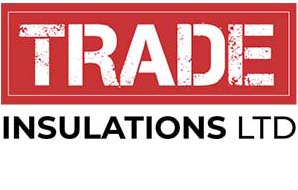
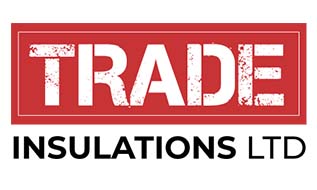
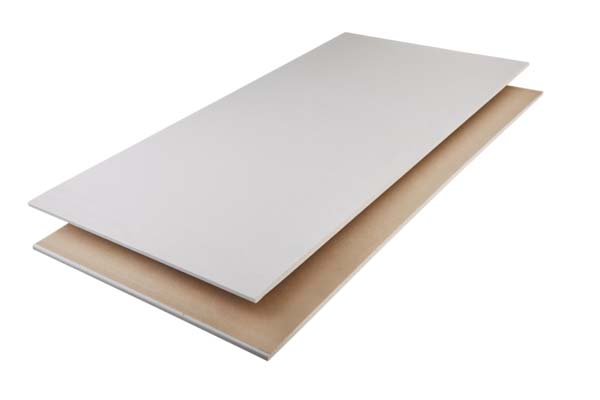
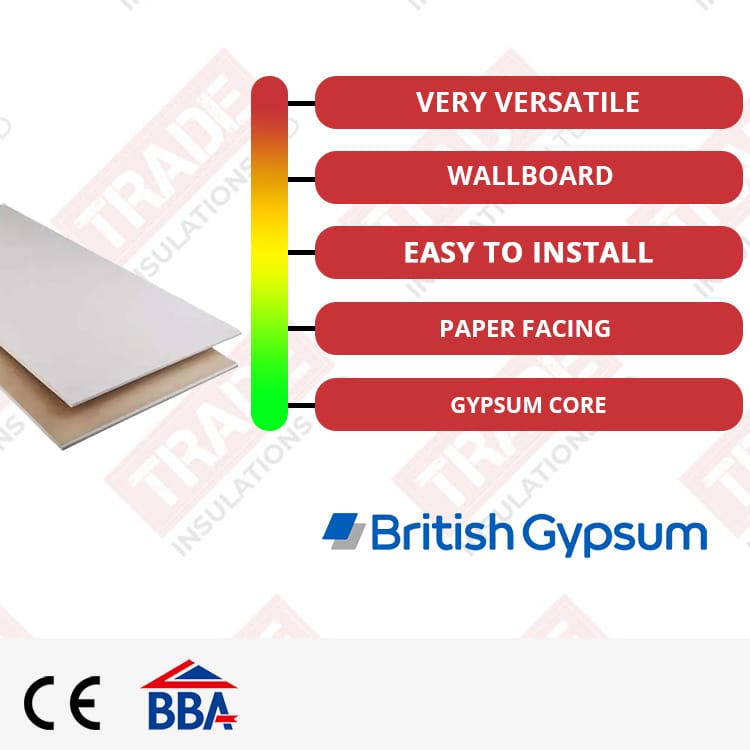
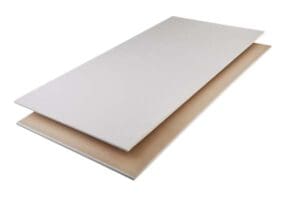
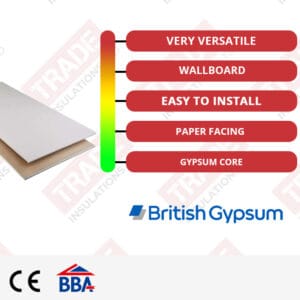

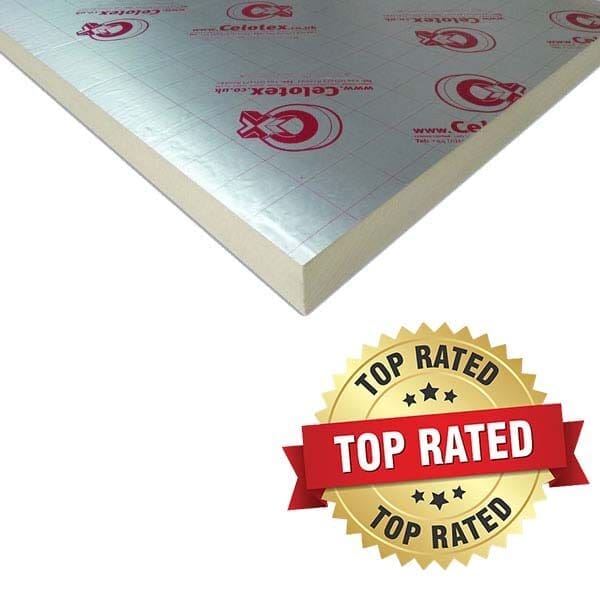
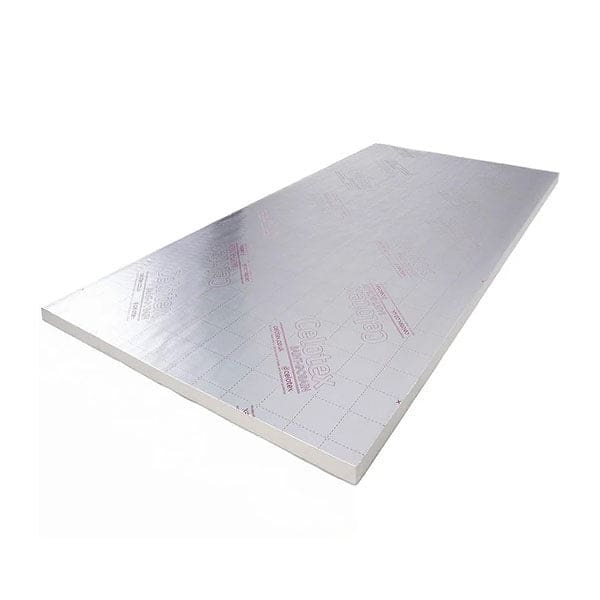
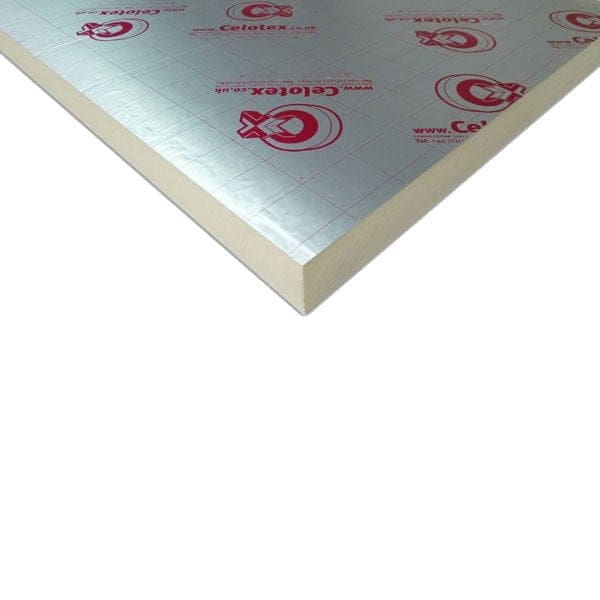
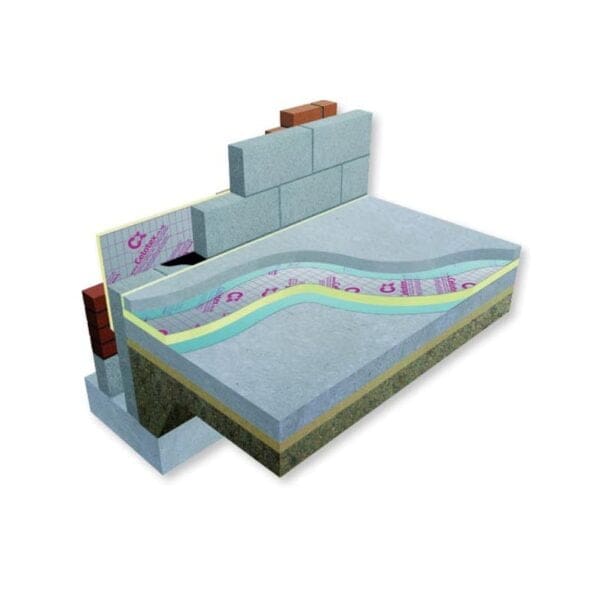
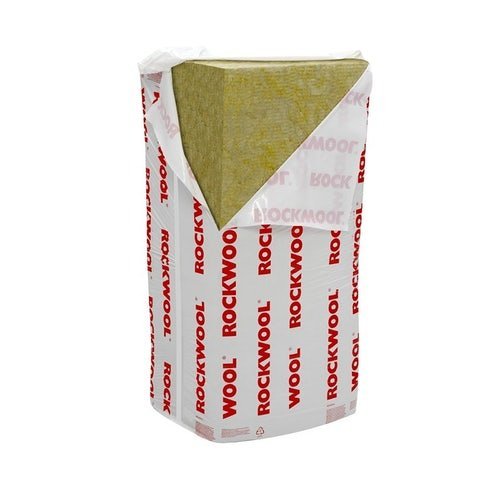
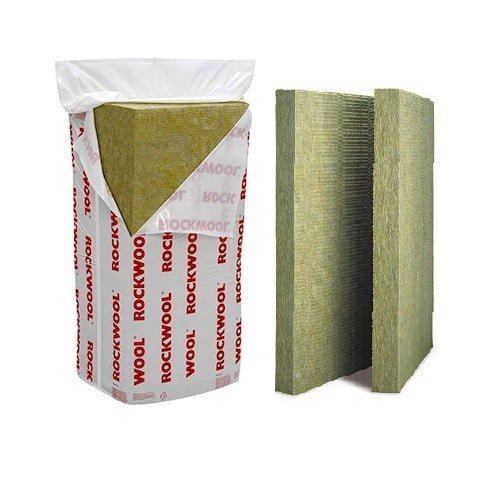
Mark –
Very easy to work with, cuts and screws well!
Arthur –
The delivery driver was very professional and fast
Luca –
these were good value plasterboard with reliable performance
William –
Excellent value for money.
Asher –
This plasterboard is perfect for creating curved walls. It’s flexible enough to bend without cracking, giving a flawless finish.